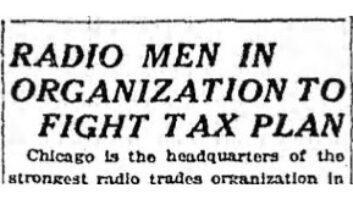I guess the lawyers at Major League Baseball felt a letdown after settling their fight with the cable companies (and some would say, a portion of MLB’s most loyal fans) over access to the Extra Innings package. Instead of enjoying summer hours, they have decided to attack another innovative CE technology, the Slingbox.
Eriq Gardner’s story in the Hollywood Reporter neatly sums up the dilemma that MLB and the other professional sports leagues face when having to weigh the value of local broadcast rights versus that of new technologies that can deliver their product to more customers. The issue’s complexity is illustrated perfectly by the fact that MLB and its online marketing arm, MLB Advanced Media (MLBAM) find themselves on opposite sides of the debate, at least according to Sling Media CEO Blake Krikorian. “It’s incredibly important to understand there are two different players, MLB and MLBAM; they have different objectives,” Krikorian said. “One of the things that a Slingbox does is it gives more value to consumers who purchase MLB Extra Innings from DirecTV or their cable company. If I want to watch a San Francisco Giants game and live in Los Angeles, Sling isn’t going to help me unless I sign up for MLB Extra Innings. So what Slingbox does is it helps the existing broadcast business model. I think the league understands this and if there’s been any pushback, it’s coming from one place — MLBAM.”
The MLBAM’s senior VP and general counsel , Michael Mellis, does not dispute that. Mellis said the league hasn’t ruled out a lawsuit. “Of course, what they are doing is not legal,” he said. “We and other leagues have formed a group to study the issue and plan our response. A lot depends on ongoing discussions. Plus, there’s no guarantee that Slingbox will be around next year. It’s a startup.”
So who’s right? Tough to say.
“You can see both sides of the issue,” said Rick Karcher, director of the Center for Law and Sports at the Florida Coastal School of Law. “Should Slingbox be treated as a broadcaster or a company that sells a piece of hardware? The rules on fair use are far from clear, and technology is making it difficult to draw a line in the sand.”
The debate has gotten a lot of play at slingcommunity.com and the Consumer Electronics Association, of course, has weighed in on the side of fair use: “This is a classic instance of copyright owners trying to suppress innovation purely because it empowers consumers,” says CEA president/CEO Gary Shapiro.” There is no infringement or piracy here — consumers are simply watching content they lawfully purchase…”
As one of the class of baseball fans that could be called obsessive (I shell out the $200 a year for Extra Innings so I can watch out-of-town games, I also subscribe to XM Satellite Radio at $11 month so I can listen to said games in my car, and I attend about a dozen games a year), I’m amazed at how MLB consistently fights to keep its games away from its most loyal fans. As suggested in Gardner’s article, the league seems to be taking its cue from the music industry with its mistreatment of its best customers.
Can anyone with any common sense really think that this is a strategy worth copying? I’m crying “foul.”













